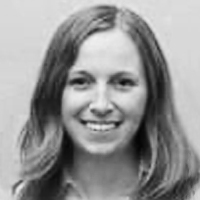Question
What impact did implantation of the MED-EL EAS Cochlear Implant System have on residual hearing thresholds?
Answer
What makes the population of candidates for the FDA-approved MED-EL Electric-Acoustic Stimulation (EAS) Cochlear Implant System unique is the significant residual hearing present in the low frequencies, coupled with severe to profound sensorineural hearing loss in the high frequencies. Candidates for EAS typically have normal hearing to moderate sensorineural hearing loss in the low frequencies. With EAS, a cochlear implant is combined with a hearing aid to provide electric stimulation in the high frequencies and acoustic amplification in the low-frequencies. In order for a patient to utilize acoustic amplification in the low frequencies, residual hearing must be maintained post-operatively. MED-EL’s approved EAS System includes thin, flexible electrodes designed to minimize cochlear trauma.
Prior to obtaining FDA approval for the EAS System, MED-EL completed a clinical trial with 73 adults implanted with a MED-EL cochlear implant with a FLEX24 electrode array. Unaided pure-tone thresholds were measured pre-operatively and at 3, 6, and 12 months post-operatively. A low-frequency pure-tone average was calculated using thresholds at 250, 500, 750, and 1000 Hz.
Based on low-frequency unaided thresholds immediately following surgery, 71 of the 73 implanted participants, or 97%, were able to be fit with acoustic amplification (subjects had at least one low-frequency threshold at 80 dB or better). Additionally, when considering the low-frequency pure-tone average for individuals who completed testing at 12 months, 59 of 67 subjects, or 88%, had hearing better than a profound degree of hearing loss in the low frequencies. Threshold shift in the low frequencies was also calculated for subjects completing the 12-month interval, with 79% of subjects experiencing less than a 30 dB shift between 250 and 1000 Hz.
Individuals with a low-frequency pure-tone average in the profound range were still fit with acoustic amplification if at least one low-frequency threshold was 80 dB or better. Six of the eight participants with profound hearing loss were still able to use acoustic amplification based on this definition. Seven of the eight participants demonstrated similar or better performance on speech understanding in quiet and/or in noise. For two individuals who were unable to be fit with the acoustic amplification immediately following surgery, improvements in speech perception were demonstrated both in quiet and in noise. None of the eight individuals with profound low-frequency hearing loss performed poorer on both measures of speech perception.
These results indicate that maintenance of residual hearing at a level sufficient for acoustic amplification is possible in a majority of patients implanted with EAS. In fact, most subjects in the clinical trial (79%) experienced less than a 30 dB shift in low-frequency thresholds. While a variety of factors could contribute to post-operative low-frequency thresholds, an EAS surgical technique followed for all clinical trial participants, along with the use of an atraumatic electrode array with MED-EL’s FLEX24. This resulted in 97% of participants in the clinical trial having low-frequency residual hearing sufficient for fitting acoustic amplification.
For more information on the MED-EL EAS Cochlear Implant System, visit medel.com/us

